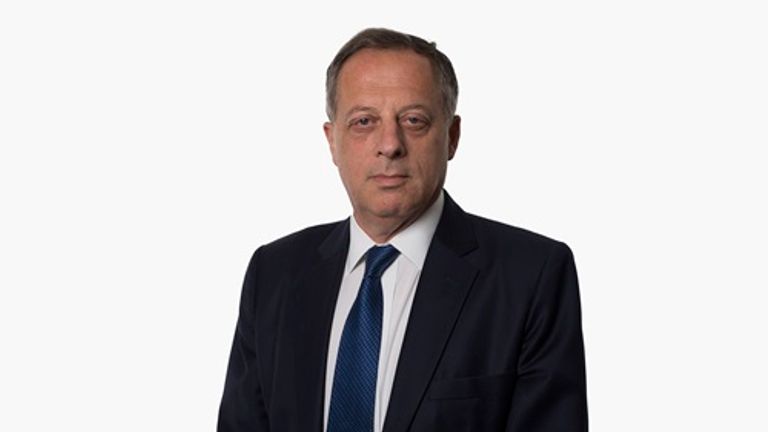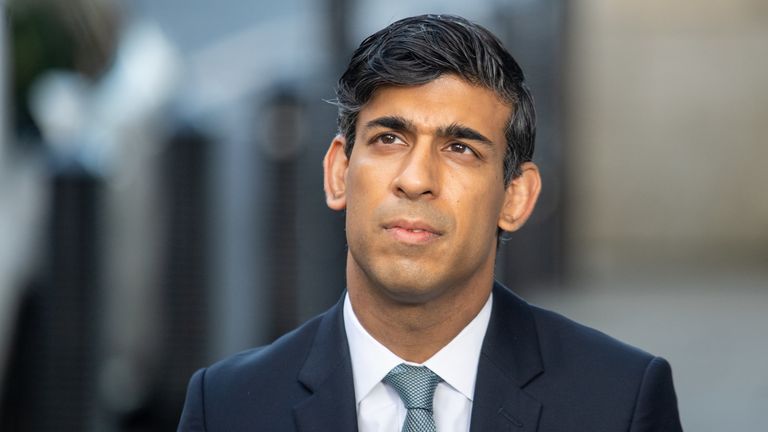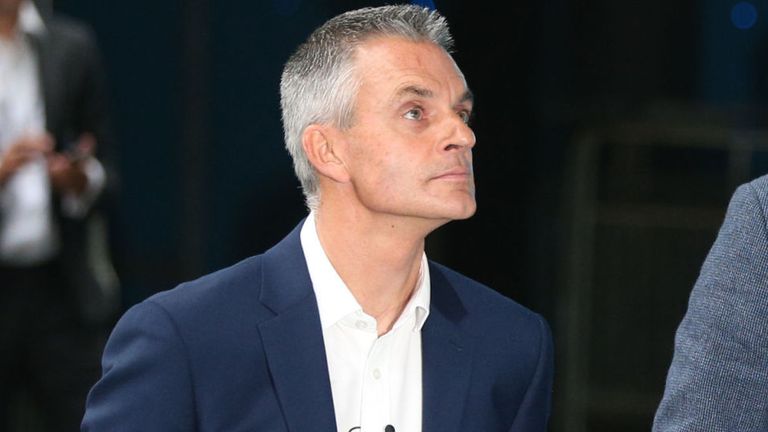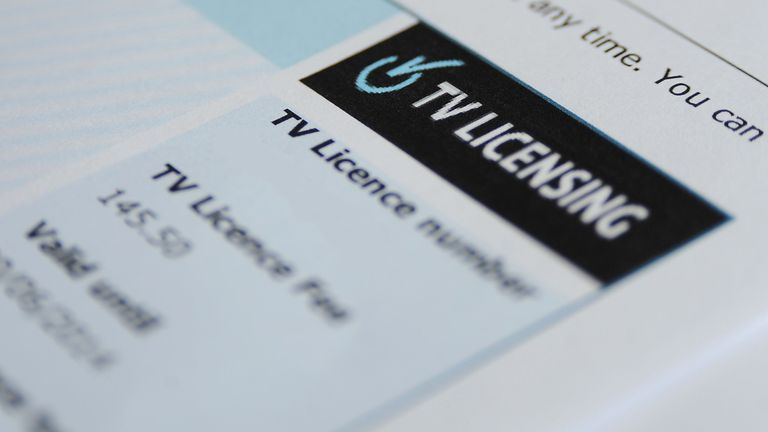Ministers to unveil former Goldman banker Sharp as new BBC chair

A former Goldman Sachs banker will this week be installed by Boris Johnson as the next BBC chairman amid a deepening debate about the fate of the television licence fee and unprecedented competition from commercial rivals.
Sky News has learnt that the government is preparing to announce the appointment of Richard Sharp as Sir David Clementi’s successor as soon as Thursday.
Mr Sharp, who during his long career at Goldman was once Rishi Sunak’s boss, has spent much of the past year as an unpaid adviser to the chancellor on the economic response to the coronavirus pandemic.
He is expected to relinquish his Treasury duties after he takes up his BBC appointment in mid-February, according to people close to the situation.
Oliver Dowden, the culture secretary, is likely to make an announcement about Mr Sharp’s selection, which has also been signed off by the prime minister.
The new chairman will work closely with Tim Davie, the former BBC Studios boss who took over as director-general just four months ago, during a time of potentially unprecedented upheaval for one of the world’s most prominent media organisations.
Mr Sharp has been seen as a frontrunner for the post since the apparent withdrawal of Charles Moore, the former Daily Telegraph editor and a staunch licence fee critic, last autumn.
Among the other candidates interviewed for the post during the latter stages of the recruitment process were Rupert Gavin, the former Odeon Cinemas chief executive, and Lord Hastings, a former head of public affairs at the BBC.
Despite his background in finance, Mr Sharp also has extensive experience of Britain’s arts establishment.
He chaired the Royal Academy of Arts Trust for several years and founded Kyra, a Gen-Z YouTube channel.
The former banker, who also spent several years as a member of the Bank of England’s Financial Policy Committee, was credited with playing a key role in engineering the £1.5bn arts bailout package announced as the COVID-19 crisis intensified last summer.
One former colleague of Mr Sharp’s said he would be an “able and supportive” chairman to Mr Davie.
“He doesn’t court publicity, but neither does he shirk difficult assignments, and he will make an excellent choice to work alongside Tim given his relationship with the current administration.”
Mr Sharp was an adviser to the PM during the latter’s time as mayor of London, and has historically been a donor to the Conservative Party, although one ally of the new BBC chair said he had given just £2,500 to it in the last decade.
He is not thought to be a Tory – or any other party – member.
The appointment of such a close ally of Mr Johnson’s as BBC chairman represents a further thawing of relations between the Corporation and Downing Street.
That process has accelerated since the departures of Dominic Cummings and Lee Cain, two of the PM’s top advisers who had been openly hostile towards it.
Mr Davie’s in-tray since taking over from Lord Hall last year has included thorny issues including BBC stars’ use of social media to express political views – which he has pledged to clamp down on, arguing that it “urgently need[ed] to champion and recommit to impartiality”.
The new director-general has also set new targets for workforce diversity and focus on cost reduction, a process which will involve substantial job cuts.
Last month, he won a significant battle when the government ditched plans to decriminalise non-payment of the licence fee, a move that would, the BBC argued, have cost it as much as £1bn annually.
It is, however, the resolution of the debate about the future of the licence fee in a media landscape featuring streaming and pay-TV services such as Netflix and Sky – Sky News’ immediate parent – that will most acutely shape the eventual legacy of Mr Davie and his new chairman.
Reports last year suggested that No 10 could move to scrap the licence fee and replace it with a subscription-style model when the BBC’s current charter comes up for renewal in 2027.
In his maiden speech as director-general last September, Mr Davie expressed his opposition to that idea: “I do not want a subscription BBC that serves the few.
“We could make a decent business out of it, and I suspect it could do quite well in certain postcodes, but it would make us just another media company serving a specific group.”
Further details of the BBC’s thinking on a new funding model are expected to emerge later this year.
The BBC and the Department for Digital, Culture, Media and Sport were contacted for comment on Wednesday, while Mr Sharp could not be reached for comment.
Source: Read Full Article




